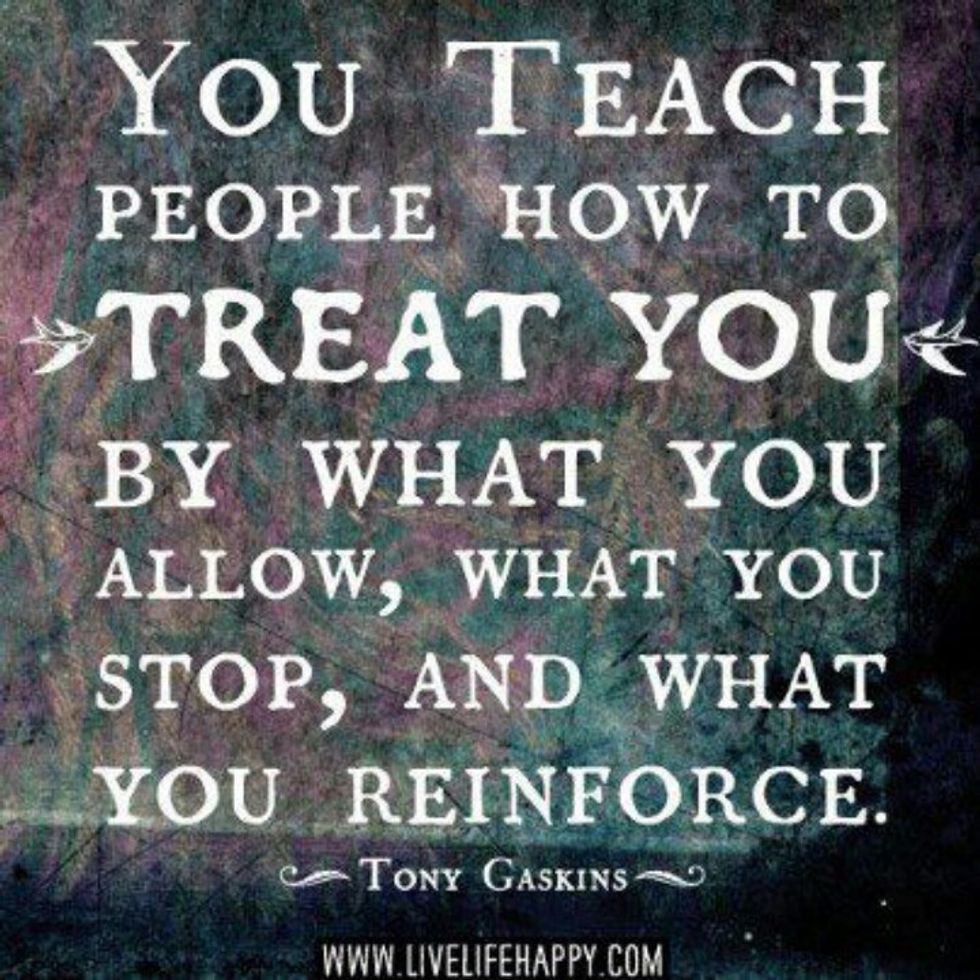In life, you need to understand how important it is to make boundaries and how to actually do them. Yes, I am an old soul, but I'd rather start to learn this lesson young than any other time.
So, what are boundaries? If you have not heard by now there is a book by Gary Chapman called "Boundaries," and I think it is a must read for any person dealing with people, period. Although this book is on my summer's reading list, I must say that I have my own ideas of what boundaries look like.
1. Know yourself and your priorities
Yes, this requires some introspection. It's hard to set up boundaries when you do not know what they are. Usually boundaries are set off your choices in priorities. For example, if I know that I need to be in bed by 11 p.m. (don't judge me), then I can't accept plans after that time. If a friend asks for a late-night hangout, then say no. If you don't like when boys/girls call you after a certain time, then that needs to be communicated. It is difficult to set boundaries when you do not know what matters and doesn't matter most to you.
2. Say No
And mean it. From my experience, I realized I cannot help everyone, nor can I do what everyone wants me to do. You need to realistically look out for your self-interests (which is hard coming from someone who loves to help people) and take care of your needs. I'm not saying to be rude when you say no, but be confident and stern in your tone.
2b. Say No and Don't do it!
It's different to say no with confidence and waver in your convictions. If you said you won't be at that party or event, do not be there! Don't feel guilty for saying no and end up doing the task anyway. Your yes should be yes, and your no should be no. How else do you expect someone to take you seriously and respect your space?
3. Communication
The only way a person understands your boundaries is when they know about it. For example, you can like having "personal" time on a Saturday, but if you don't communicate that when the opportunity arises, that person will ask you out. People are not mind readers, and to avoid the frustration for you and the other person, communicate what you expect.
4. Respect other's boundaries
When a person starts understanding the power in boundaries, they usually learn to respect other's as well. Your boundaries are just as important as another person's.
5. Remember, it's a process
Healthy boundaries do not happen overnight. According to Donna White, "It is a process that requires continuous work and willingness to learn and grow. Seek feedback and directions from others who have healthy boundaries. Value your feelings and know that you are worth it."
Happy boundary setting everyone!







 Energetic dance performance under the spotlight.
Energetic dance performance under the spotlight. Taylor Swift in a purple coat, captivating the crowd on stage.
Taylor Swift in a purple coat, captivating the crowd on stage. Taylor Swift shines on stage in a sparkling outfit and boots.
Taylor Swift shines on stage in a sparkling outfit and boots. Taylor Swift and Phoebe Bridgers sharing a joyful duet on stage.
Taylor Swift and Phoebe Bridgers sharing a joyful duet on stage.












